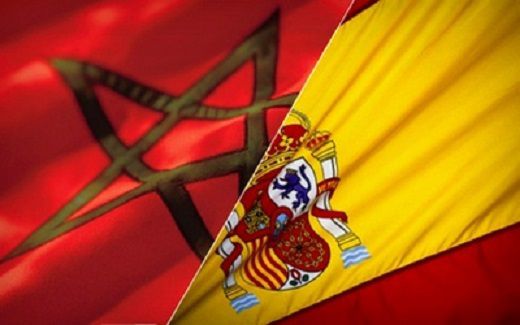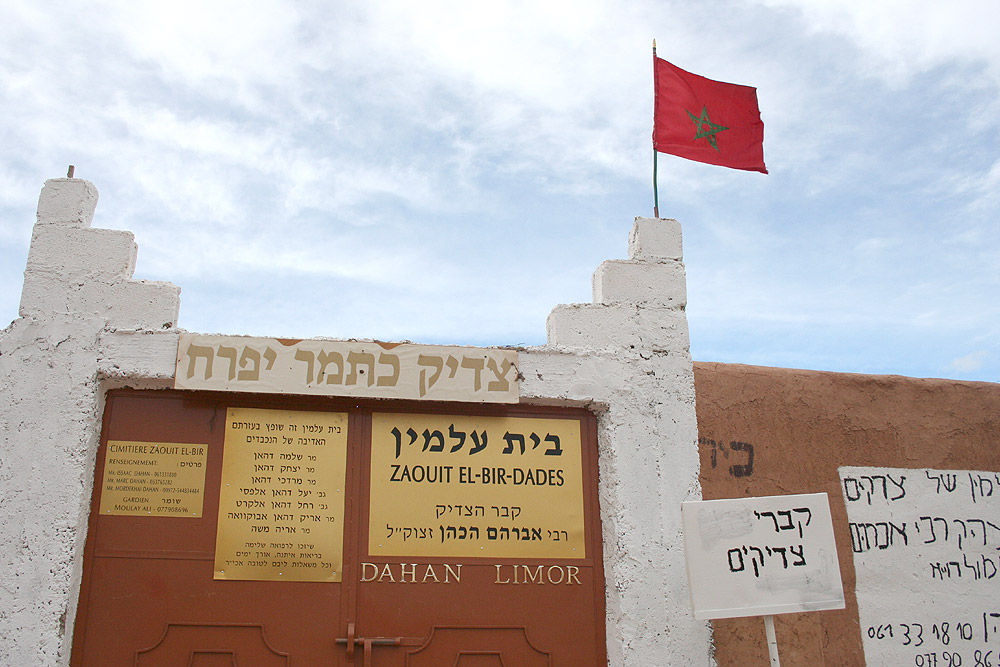Zamzam is the popular name of a famous Zamzam well in Makkah that comes from the phrase Zome Zome, meaning ‘stop flowing,’ a command repeated by Hagar during her attempt to contain the spring’s water. Zamzam actually has over 60 names, including Maymounah; which is the name of a many centuries-old celebration of Arab-Jewish amity.
The Zamzam-Maymounah well is one of the most enduring wonders of Islam representing God’s mercy. The Zamzam-Maymounah well first sprang up 4,000 years ago under the feet of the Prophet Ismael, after his mother Hagar, the second wife of Prophet Ibrahim, ran seven times between the two hills of Safa and Marwah looking for water to save the life of her thirsty son.
The name Maymounah well sounds very much like the North African Jewish festival of Maymouna (pronounced Meemuna in Modern Hebrew), a 24-hour post-Passover food-centered traditional celebration of Muslim-Jewish amity, now reborn in the State of Israel.
Jews lived in North Africa for at least ten centuries before the Muslim Arabs arrived. Each year Moroccan Jewish homes, like all other Jewish homes in the world, were purged of leavened bread during the week of Passover.
At the end of Passover, Jews could eat bread and pastry, but they had no flour at all in their homes to bake with, so frustration was pervasive. All that changed after the Muslims arrived.
Many Muslims know that during the week of Passover (the Feast of Unleavened Bread; celebrated by Reform Jews worldwide plus all Jews in the Land of Israel for 7 days, and by Orthodox Jews outside of Israel for 8 days) the Torah declares no leaven grain products (of wheat, barley, oats, rye, etc.) should be found in Jewish homes:
“Seven days you shall eat unleavened bread, on the first day remove (all) leaven from your houses; for whoever eats anything leavened from the first day until the seventh day, that person shall be cut off from The People of Israel. On the first day, you shall have a holy assembly, and another holy assembly on the seventh day; no work at all shall be done on them, except (for) what must be eaten by every person, that alone may be prepared by you. You shall observe the Feast of Unleavened Bread, for on this day I brought your multitudes out of the land of Egypt; so observe this day throughout your generations as a permanent ordinance.”(Exodus 12:15-20)
So how does each Jewish household get rid of all their bags of grain before the first day, and from where do they get new bags of grain to start eating right after the last day of Passover is over? You can burn the bags of grain, but that is wasteful.
Or you can give it to your non-Jewish neighbors, and get it back after Passover is over: provided you trust your neighbors not to allow the grain to become moist and thus impure. In Christian countries, with their long history of persecuting Jews, this solution was never even tried.
In Muslim countries, however, Jews trusted their Muslim neighbors who also carefully observed Halal laws of ritual purity. And this is how a new Jewish holiday developed in North Africa.
It would be a major mistake to judge from the Palestinian-Israeli political conflict in the 20th century that Jewish-Muslim relations have usually been poor. The opposite is true. Prior to the rise of secular, political, nationalism in the 19th century, and the rise of politicized religion within Judaism and Islam in the 20th century, Jewish-Muslim relations were usually characterized by neighborliness and amity as the North African Jewish celebration of Maymouna (pronounced Meemouna) shows.
Shaul Ben-Simhon, who immigrated to Israel in 1948 at age 18, recalled the tradition of Arab neighbors bringing flour to his home, so his mother and grandmother could make baked goods. Usually, these were the same bags of flour that Jews had given to their Muslim neighbors a day prior to the start of Passover, so Jews could rid their homes of leavened flour prior to Passover.
When, after the end of Passover, Muslims came to Jewish homes to return the flour, they were always invited to stay for a few hours and enjoy the soon to be baked goodies.
Thus, Jewish homes were filled with neighbors, friends, and family exchanging traditional Arabic blessings of good luck and success while awaiting the laden trays of delicious Mimouna baked goods. The celebration often was repeated the next day with even more pastry and joy.
One theory regarding how the celebration got the name Mimouna is that it comes from a word that sounds similar to Mimouna (Amina in Arabic, Ahmina in Turkish, Ehmunah in Hebrew) all three of these words mean faith or trust.
Jews trusted their Muslim neighbors to guard the flour faithfully from becoming impure, and their Muslim neighbors always did so. Mimouna is thus a celebration of Jewish-Muslim amity, fellowship, and good neighborliness.
Another theory is that the Zamzam well’s name of Maymounah celebrates faithfulness because when carefully tended to, the Zamzam well never runs dry; and when you have good faithful neighbors your flour will always be returned unpolluted.
Today all across the Land of Israel, Moroccans and Israelis of all ethnic backgrounds flock to large public and small private Maymounah celebrations. A special law even requires bosses to grant employees unpaid leave on the day of Mimouna if they want to carry on celebrations from the previous evening.
Unfortunately, the Orthodox Rabbinical bureaucracy has arraigned for the European style formal “sale” of all the leavened flour in a city to a few Arab Muslims or Christians, so the much more personal, private “sale” to one’s Arab neighbors rarely takes place in Israel. Perhaps, a restoration of this part of the Passover tradition will help bring Jews and Arabs in Israel closer together. In Morocco, it was a day when people would visit each other to bury grudges.
One of the best parts of Mimouna for most people is the varied menu of baked goods. According to Elisheva Chetrit, a historian of Moroccan Jewry at Jerusalem’s Schechter Institute of Jewish Studies, in Morocco the yearly celebration began with the eating of nuts, dates, and dried fruit, as Muslims do when braking the daily fast during Ramadan.
After eating nothing leavened for seven days, to break this ‘leaven fast’ with dozens of different Moroccan-style baked goods is fantastic.
Mimouna Jewish-Muslim amity illustrates the truth of the wonderful saying of the Muslim scholar Rabia (715-801 CE) who was asked, “Do you love God?” She answered, “Yes.” – She was asked again, “Do you hate the devil?” She answered, “My love of God leaves me no time to hate.”





